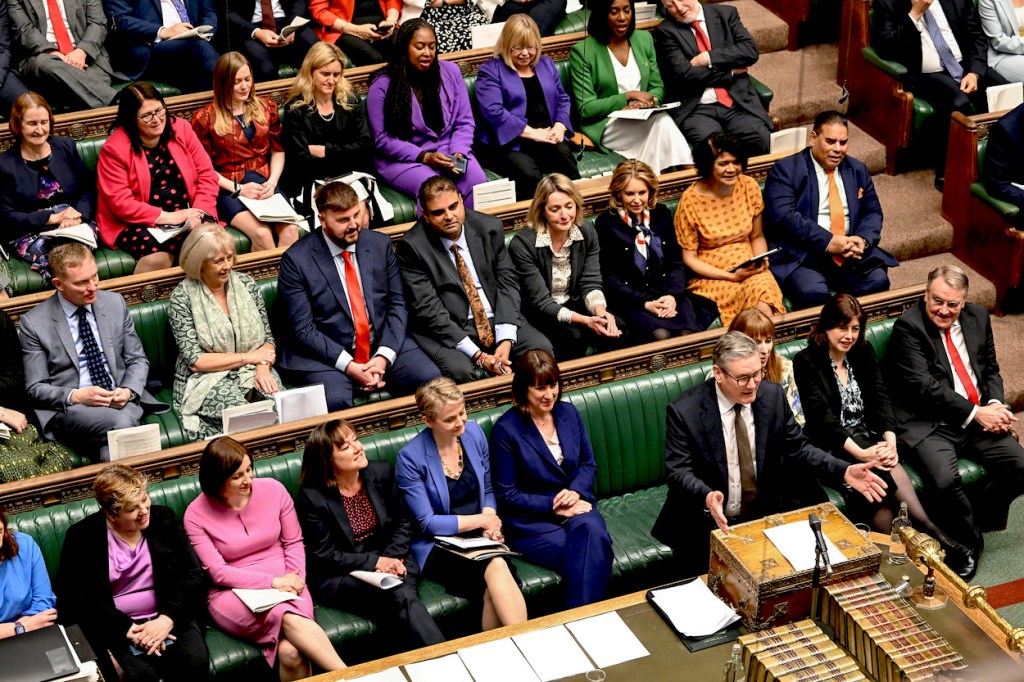The Conclave, which meets in the Vatican today to elect a new pope, is likely to be brief. For the past hundred years, no conclave has exceeded four days, with two days being the most common. It seems unlikely that this one will be an exception.
Many Catholics, at least, hope as much. The cardinals will not wish to expose the divisions within the Church to the world through a prolonged and fractious conclave. Taking their time would suggest a Church paralysed by competing factions. Convening quickly would project unity and resolve.
The cardinals – mindful of both history and optics – will not wish to let ideological divisions harden into public spectacle
But this being the Catholic Church, nothing is certain: deliberations can range from hours to years.
Conclaves emerged from the 1059 papal bull of Pope Nicholas II, In Nomine Domini, which gave cardinals the sole responsibility for electing the pope. Before 1059, popes were chosen through a volatile mix of Roman clergy, public acclamation, aristocratic intrigue and imperial interference, with powerful noble families and emperors treating the papacy as a prize to be seized rather than a spiritual office to be discerned.
In the medieval period, conclaves often dragged on for months. One of the most infamous examples was in 1268, when the cardinals gathered in Viterbo, in keeping with the custom of meeting in the city where the pope had died. Clement IV, a Toulousain former soldier and lawyer who had entered the Church after the death of his wife, had sought to avoid the anti-papal Ghibellines dominating Rome and so spent his entire pontificate in the Tuscan fortress city.
Despite the presence of the future Pope Honorius IV – who would be elected in a single ballot at the 1285 conclave – the cardinals became hopelessly deadlocked with factions unable to reach consensus. After months of stalemate, the local Viterbesi intervened: they removed the roof and restricted the cardinals to bread and water. After two years and nine months, Gregory X was finally elected. In his 1274 bull Ubi periculum, he codified many of these tactics to ensure future elections would proceed more swiftly.
Ubi periculum laid the foundation for all subsequent conclaves, making them less of a hustings and more of a spiritual retreat by sequestering cardinals from the outside world and dictating that each day should begin with Mass and prayer.
Nonetheless, politics persisted. The jus exclusivae – or “right of exclusion” – was traditionally claimed by the Catholic monarchs of France, Spain and Austria, allowing them to veto certain candidates. Though never officially recognised, it was influential during the 17th and 18th centuries.
The jus exclusivae was explicitly banned in 1904 by the bull Commissum Nobis of Pope St Pius X, following the Austrian veto of Cardinal Rampolla at the conclave that elected him. Yet even in 1963, General Franco attempted to block the election of Cardinal Giovanni Battista Montini. His intervention was rejected, and Montini became Pope Paul VI.
Alongside abolishing the jus exclusivae, Pius X also issued the apostolic constitution Vacante Sede Apostolica, which formalised procedures during the sede vacante and required more structured meetings of the College of Cardinals. John Paul II’s Universi Dominici Gregis (1996) went further, mandating that cardinals meet daily before the conclave begins.
These daily “General Congregations” are opportunities for cardinals to discuss what they desire in the next pope. In 2013, Cardinal Jorge Bergoglio made a passionate intervention calling for the Church to open itself to the world – a speech widely seen as pivotal in his election. These gatherings ensure the cardinals will likely enter the conclave with a clear sense of their preferred candidate.
They may also favour the election of a conservative. Much has been made of Pope Francis’s influence; 108 of the 135 electors under 80 are his appointees. Less attention has been paid to those over 80, among whom the more conservative generations appointed by John Paul II and Benedict XVI are more numerous. While they cannot vote, they are permitted to attend the General Congregations, comprising 40 per cent of the total 252 cardinals.
Among them is Cardinal Zen, the 93-year-old freedom-fighting emeritus bishop of Hong Kong. Once arrested by the Chinese authorities, he had to seek their permission to travel to Rome to pay his respects to Pope Francis. Outspoken to say the least, he has been highly critical of Cardinal Pietro Parolin – the Vatican Secretary of State and leading liberal contender – not least over his views on Vatican–China relations.
Another is Cardinal Arinze of Nigeria. At 92, he is one of the last surviving prelates to have attended the Second Vatican Council. In response to Amoris Laetitia (2016), which opened the door in some cases to Communion for Catholics in irregular marital situations, Arinze declared that such Catholics must not receive the Eucharist unless they live “as brother and sister”. He has also publicly supported the conservative practice of receiving Communion while kneeling.
Francis frequently elevated cardinals from the Church’s geographical peripheries. As these relatively inexperienced men descended upon the Eternal City, the General Congregations may have presented an opportunity for the older generation to assert their influence. And that influence will likely have been a conservative one.
Whoever is chosen, all signs point to a swift and disciplined election. The cardinals – mindful of both history and optics – will not wish to let ideological divisions harden into public spectacle. Those making the journey to Rome are likely to be treated to speedy white smoke and St Peter’s successor stepping out onto the loggia this week. Under the watchful eyes of the older generation, we may yet see a conservative.







Comments